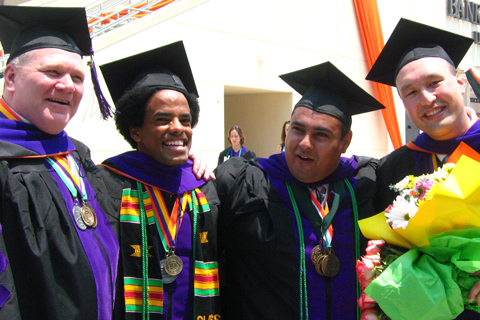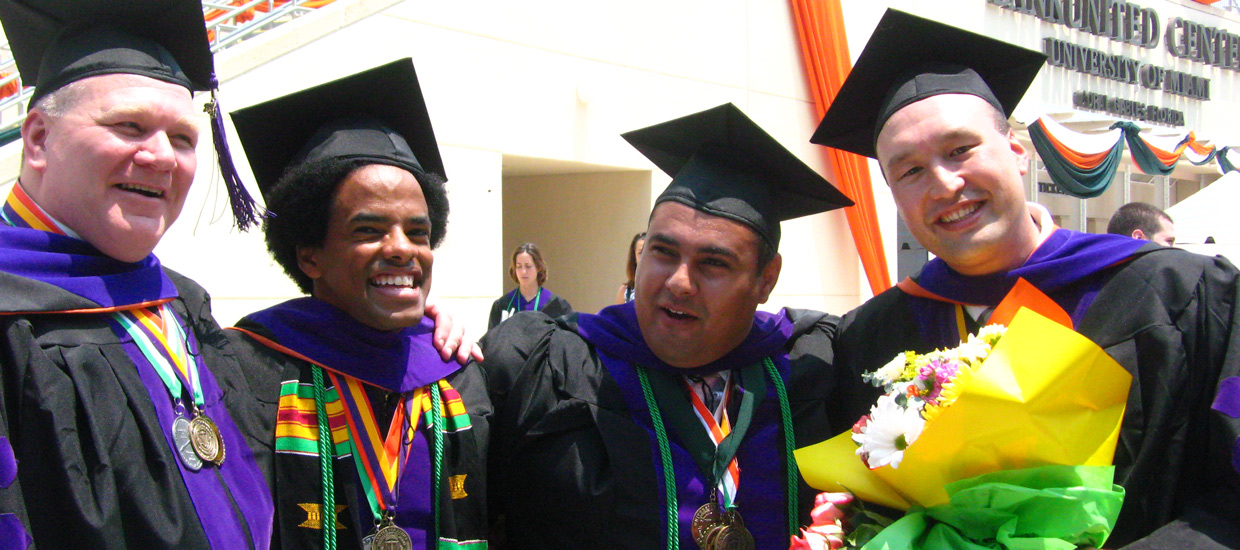HOPE Pro Bono Challenge Award
Miami Law’s Public Interest Resource Center awards a student in each class who completed the most pro bono hours.
HOPE Commitment Community Service
Miami Law’s Public Interest Resource Center awards a student in each class who completed the most community service.
3L Awards
Exemplary Service to the Poor
This award is given to a graduating 3L student who has performed exemplary service benefiting poor persons. The work must have been accomplished through an existing student or community organization. Qualifying work includes law-related as well as non-law-related work and may be either directly beneficial to poor persons or to a charitable, religious or educational organization whose overall mission and activities predominately address the needs of poor persons. The term "poor" is not limited to those who meet federal poverty standards but also includes "working poor." A qualifying student may have received academic credit or financial compensation for the work.
Innovative Service in the Public Interest
This award may be given to a graduating 3L student or to a student organization whose board membership consists significantly of graduating 3L students. Qualifying work includes the meaningful expansion of an existing program, or the creation of a new program. The award seeks to recognize innovation in addressing public interest concerns and may include (1) work for persons of limited means; (2) work that expands the work of a charitable, religious, civic, community, governmental or educational organization and addresses the needs of persons of limited means; (3) work that is designed to secure or protect civil rights, civil liberties, or public rights; (4) work that expands the work of a charitable, religious, civic, community, governmental, and/or educational organization; (5) work that is designed to improve the law, the legal system, or the legal profession. A qualifying student may have received academic credit or financial compensation for the work. For more information on the Application Process, contact the HOPE office.





